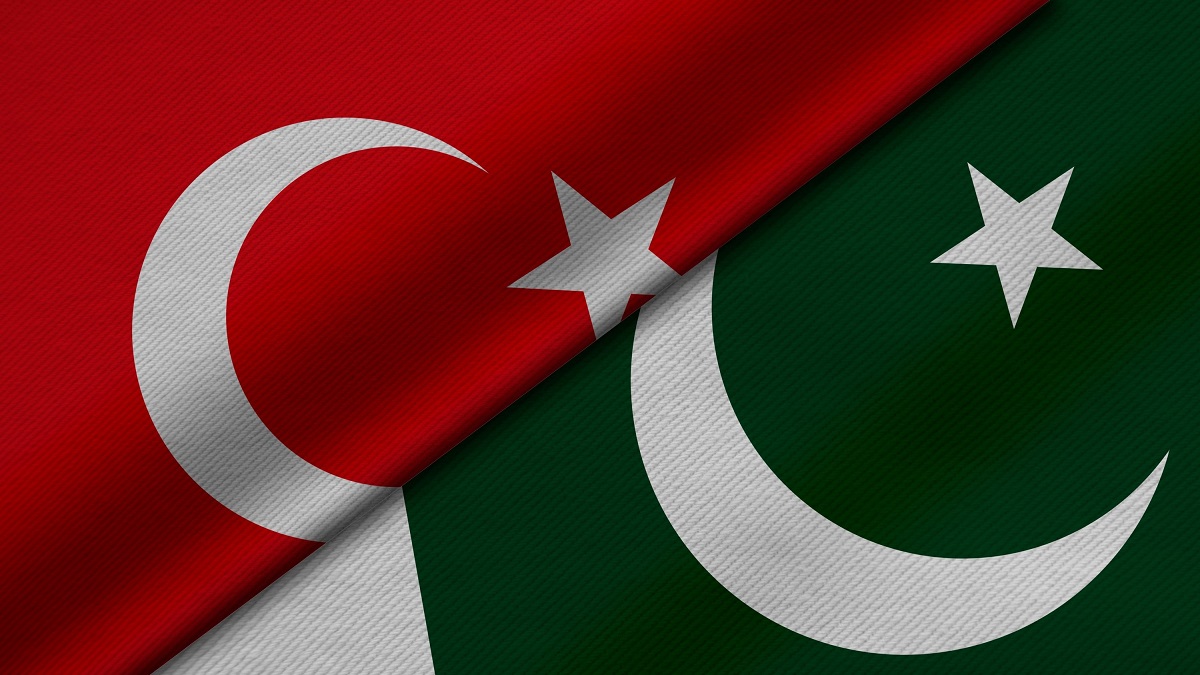Pakistan and Turkiye have implemented a preferential trade agreement to boost bilateral trade volume across various sectors after seven years of signing the “Trade in Goods Agreement” in August 2016. Duty reductions on mutually agreed tariff lines were notified with effect from May 1, according to an official announcement by the commerce ministry on Thursday. Pakistan has gained preferential access to the Turkish market under 261 tariff lines covering traditional as well as non-traditional sectors such as leather, rice, dates, mangoes, cutlery, sports goods, seafood, processed agricultural products, rubber tubes and tyres, plastics, and engineering goods. The total trade between Pakistan and Turkiye stood at $883 million in the fiscal year 2021-22 with Pakistan’s exports to Turkey amounting to $366 million and imports from Turkey amounting to $517 million. The balance of trade is in favor of Turkey with a negative trade balance of $151 million in 2021-22.
Under the agreement, duty was reduced to zero per cent on 123 tariff lines, including five agricultural and 118 industrial products. The current export value of these products is $714 million, while Turkish global imports of these products stand at $3.920 billion. Customs duty on average is 2-3 percent. However, the additional customs duty is 20 percent for industrial products, which will be reduced. This is one area with the potential to increase exports of non-traditional products. Whereas concessions on 130 tariff lines have been extended to Turkey, including products such as black tea, processed food products and flavorings, industrial raw materials and parts of machinery, and parts of electronic equipment. Pakistan’s global imports of these products stand at $6 billion.
In the second phase, Turkey will reduce the duty to zero per cent on 92 tariff lines during a period between five and 10 years. Pakistan’s export value of these products is $1.608 billion, while Turkish global imports stand at $2.084 billion. Turkey has offered a margin of preferences and tariff rate quota on agriculture products to Pakistan. The categories of products that will benefit from the concessions are leather, footwear, glass and ceramics, articles of base metal, plastics and rubber, furniture, mattresses and lamps, sports and engineering goods, chemicals and cosmetics, agriculture products, and processed agriculture.
Read More: Vietnam sees trade rising to $1 billion next year
Pakistan will reduce to zero per cent in five to 10 years on 16 tariff lines. Turkish global exports of these tariff lines stand at $2.123 billion, while Pakistan’s imports of these products are $684 million. In five years, the duty will be exempted on chocolate crumbs, active yeast, flavoring powders, animal feed, laboratory reagents, clamps of steel, copper wire 6mm, pressure-reducing valves, and slide fasteners. In 10 years, duty will be reduced on clips, brackets of iron and steel, mounting, fitting for furniture, parts of sorting, screening, grinding machines, apparatus for the transmission of voice, etc.
The commerce minister stressed the need to increase business-to-business interaction to strengthen trade and investment relations between the two brotherly countries. He said the agreement signifies a notable milestone in the historic brotherly relations between Pakistan and Turkiye and envisages further integration of the markets and business communities of both countries. The agreement will open new export opportunities for both nations.



























